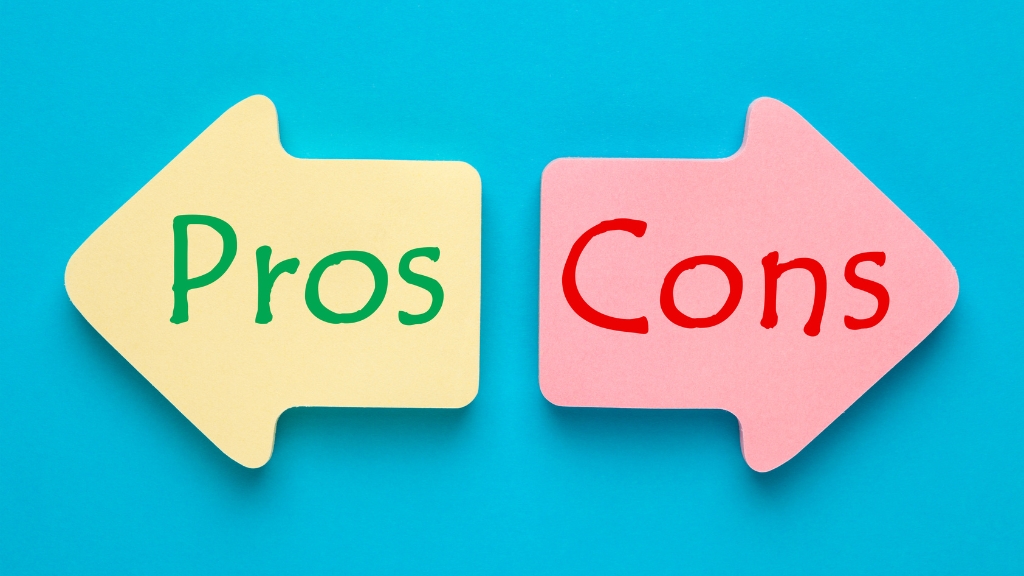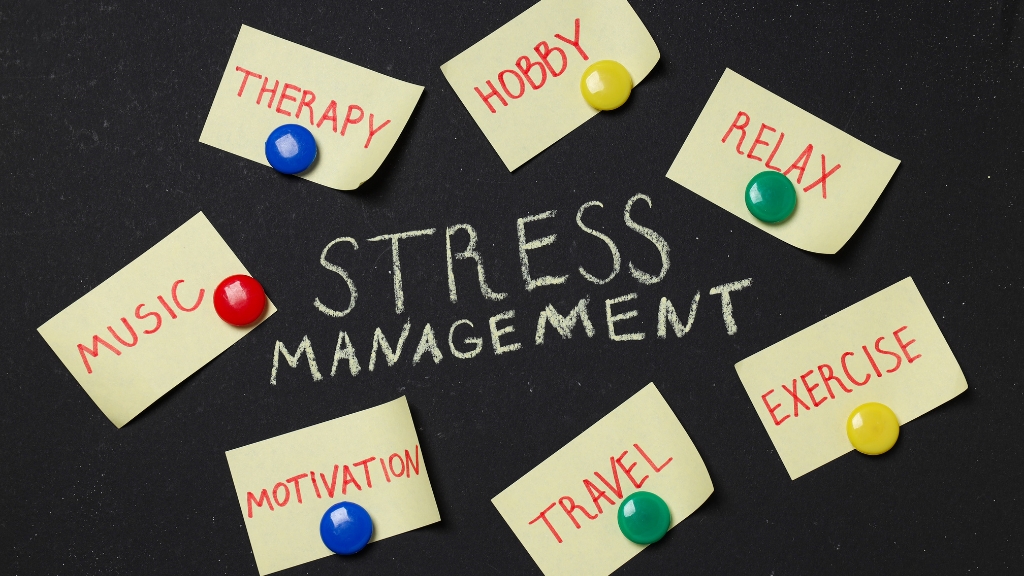
How to choose a web designer?
Are you ready to take your online presence to the next level? Whether you’re starting a new business or revamping an existing one, having a captivating website is crucial in today’s digital world. But where do you begin? Choosing the right web designer can make all the difference in transforming your vision into reality. With so many options out there, it’s important to consider a few essential factors before making this critical decision. In this blog post, we’ll dive deep into the seven key elements that will help you select the perfect web designer for your project. Don’t settle for anything less than exceptional – read on and discover how to turn your dream website into an awe-inspiring reality!
Introduction: Importance of Choosing the Right Web Designer
Introduction:
In today’s digital world, having a strong online presence is crucial for the success of any business or organization. And one of the key components of a powerful online presence is a well-designed and functional website. A website serves as the virtual storefront for your brand and can greatly impact how potential customers perceive your business.
With the increasing demand for websites, there has also been a rise in the number of web designers and agencies offering their services. However, not all web designers are created equal. Choosing the right web designer for your project is essential to ensure that you get a high-quality website that meets your needs and exceeds your expectations.
In this section, we will discuss why it is important to carefully consider your options when choosing a web designer and how it can make or break the success of your website.
1. Professionalism:
One of the most significant reasons why it is crucial to choose the right web designer is professionalism. A professional web designer will have years of experience, knowledge, and skills required to create an effective website that aligns with your goals and objectives. They understand industry standards, best practices, and have an eye for design to deliver an aesthetically pleasing yet functional website.
On the other hand, working with an inexperienced or unprofessional web designer can result in subpar work that does not meet industry standards or lacks creativity and originality. This can ultimately harm your brand’s image and credibility in the eyes of potential customers.
Factor 1: Portfolio and Previous Work
When it comes to choosing a web designer for your project, one of the most important factors to consider is their portfolio and previous work. This is because it gives you an insight into their skills, style, and capabilities as a web designer.
A portfolio is a collection of a web designer’s previous projects that showcases their design abilities and experience. It can include websites they have designed, logos they have created, or any other visual designs they have worked on. By looking at a designer’s portfolio, you can get a better understanding of their strengths and weaknesses and whether or not they are the right fit for your project.
Here are some key aspects to consider when evaluating a web designer’s portfolio and previous work:
1. Design Style: Every web designer has their own unique style and aesthetic. When browsing through their portfolio, pay attention to the overall look and feel of the websites they have designed. Do you like their design style? Does it align with your brand image? It’s important to choose a web designer whose style resonates with yours so that you can be confident in the end result.
2. User Experience: A visually appealing website is great, but it also needs to be user-friendly and easy to navigate. Take some time to test out the websites in the designer’s portfolio yourself. Is it easy to find information? Are there any broken links or errors? A good web designer will prioritize both design aesthetics and user experience in their work.
Factor 2: Experience and Expertise
When it comes to choosing a web designer for your project, there are many factors that you need to consider. One of the most important ones is their experience and expertise in the field. In this section, we will delve deeper into why these two factors are crucial in selecting the right web designer for your project.
Experience in web design is not just about the number of years a designer has been working in the industry. It also encompasses the type of projects they have worked on and the complexity of those projects. A web designer with years of experience but who has only worked on basic websites may not be able to handle a more intricate and complex project. On the other hand, a relatively new designer who has successfully completed several challenging projects may be a better fit for your needs.
It is essential to ask potential designers about their past projects and how they handled any challenges that came up during those projects. This will give you an idea of their problem-solving skills, ability to work under pressure, and attention to detail – all vital qualities in a good web designer.
Another aspect of experience that you should consider is whether or not the web designer has experience working with businesses similar to yours. For example, if you run an e-commerce store, then it would be beneficial to hire someone who has previously designed e-commerce websites. They will have a better understanding of your target audience’s needs and preferences and can create a website that caters specifically to them.
Factor 3: Communication and Collaboration Style
Communication and collaboration are crucial elements in any successful web design project. Your chosen web designer should not only have technical skills and a creative eye, but also possess excellent communication and collaboration style. This factor plays a significant role in ensuring that your vision is accurately translated into a functional website.
Here are some aspects to consider when evaluating a web designer’s communication and collaboration style:
1. Communication Channels:
Effective communication requires the use of appropriate channels to convey information between the client and the designer. A good web designer should be able to communicate through various channels such as email, phone calls, video conferencing, or in-person meetings. They should also be responsive and timely in their communication, keeping you updated on the progress of your project.
2. Active Listening:
In addition to being able to effectively communicate their ideas and plans, a great web designer must also be an active listener. They should take the time to understand your brand, goals, and target audience before jumping into designing your website. This will ensure that they create a website that aligns with your vision and meets your business objectives.
3. Collaborative Approach:
Web design is not just about creating something visually appealing; it’s about translating your brand story into digital form while keeping user experience at the forefront. A good web designer will collaborate with you throughout the design process, seeking feedback and incorporating it into their work. They should also be open to suggestions and willing to discuss different options with you.
Factor 4: Understanding of Your Brand and Goals
Factor 4: Understanding of Your Brand and Goals
When choosing a web designer for your project, it is essential to consider their understanding of your brand and goals. This factor goes beyond just creating a visually appealing website; it involves the designer’s ability to accurately convey your brand’s identity and effectively communicate your business goals through design.
Here are some key aspects to keep in mind when assessing a web designer’s understanding of your brand and goals:
1. Familiarity with Your Brand Identity: A good web designer should take the time to thoroughly understand your brand identity before starting any design work. This includes understanding your target audience, brand values, mission statement, and overall aesthetic. The more familiar they are with these elements, the better they can reflect them in the website design.
2. Consistency in Design Elements: Your website should be an extension of your brand’s visual identity across all platforms. A skilled web designer will ensure that the website design is consistent with your other branding materials such as logos, color schemes, fonts, etc. This consistency helps to strengthen brand recognition and builds trust with your audience.
3. User Experience (UX): A great web designer understands that a visually appealing website is not enough; it also needs to provide an optimal user experience for visitors. They will consider factors such as site navigation, page loading speed, mobile responsiveness, and overall ease of use when designing your site.
4. Alignment with Business Goals: Every business has specific goals they want to achieve through their website
Factor 5: Pricing and Budget Considerations
Pricing and budget considerations are often one of the top concerns for individuals or businesses looking to hire a web designer. While it may be tempting to choose the cheapest option, it’s important to remember that quality work comes at a price. In this section, we will discuss some key factors to keep in mind when considering pricing and budget for your web design project.
1. Determine Your Budget: Before even starting your search for a web designer, it’s important to have a clear understanding of your budget. This will help you narrow down your options and ensure that you don’t overspend on your project. Take some time to research average costs for similar projects in order to set realistic expectations for what you can afford.
2. Ask About Pricing Structure: Web designers may charge different rates depending on their level of experience, expertise, and the complexity of the project. Some may charge an hourly rate while others may offer a flat fee for the entire project. It’s important to ask about their pricing structure upfront so there are no surprises later on.
3. Consider Additional Costs: In addition to the cost of designing your website, there may be additional expenses such as domain registration, hosting fees, maintenance costs, and more. Be sure to clarify with the web designer what is included in their pricing and what additional costs you should expect.
4. Quality over Price: As mentioned earlier, choosing the cheapest option is not always the best decision when it comes to web design.
Factor 6: Timelines and Project Management Skills
Timelines and project management skills are essential factors to consider when choosing a web designer for your project. A successful website requires not only a creative vision and technical expertise, but also efficient time management and effective project management skills.
1. Timelines:
Timelines refer to the projected deadlines for completing different phases of the web design project. A skilled web designer should be able to provide you with a realistic timeline that outlines the key milestones and deliverables for your project. This will ensure that both parties have a clear understanding of what needs to be done, by when, and in what order.
When considering a web designer, make sure to ask about their process for creating timelines. Do they have experience in managing similar projects? Are they able to prioritize tasks effectively? How do they handle unexpected delays or obstacles?
2. Communication:
Clear communication is crucial in any project, especially when it comes to meeting timelines. A good web designer should be able to communicate effectively with you throughout the entire process – from initial discussions to final revisions.
Look for a web designer who makes an effort to understand your goals and objectives for the website, as well as your target audience’s needs. They should also be open to feedback and willing to discuss any potential changes or adjustments along the way.
3. Project Management Skills:
Web design projects can quickly become overwhelming without proper project management skills in place. These skills include being organized, detail-oriented, and proactive in addressing issues before they arise.
Factor 7: Availability for Ongoing Support and Maintenance
When it comes to choosing a web designer for your project, one crucial factor that often gets overlooked is their availability for ongoing support and maintenance. While the initial design process may seem like the most important aspect, it is equally essential to consider how involved your web designer will be in the long-term success of your website.
Here are some key points to keep in mind when evaluating a web designer’s availability for ongoing support and maintenance:
1. Communication and Response Time:
One of the first things you should consider is how responsive and communicative your potential web designer is. It is essential to have a clear understanding of their communication channels and response time in case any issues arise with your website. A good web designer should be available to answer any questions or concerns promptly and efficiently.
2. Maintenance Services Offered:
Before finalizing a contract with a web designer, make sure to inquire about the services they offer after completing the initial design process. Some designers may only focus on creating the website and not offer any ongoing maintenance or support services. On the other hand, others may include regular updates, backups, security checks, and troubleshooting as part of their package.
3. Technical Expertise:
It goes without saying that having technical expertise is critical for maintaining a successful website. Your chosen web designer should have extensive knowledge of coding languages such as HTML, CSS, JavaScript as well as experience working with different content management systems (CMS) like WordPress or Drupal. This way, they can handle any necessary updates or changes efficiently
Conclusion: Finding the Perfect Web Designer for Your
After considering all the essential factors when choosing a web designer for your project, you may be wondering how to come to a final decision. In this section, we will discuss the importance of a strong conclusion and provide some tips on finding the perfect web designer for your specific needs.
1.1 Analyze Your Needs
Before making any decision, it is crucial to first analyze your needs and goals for your website. This will help you determine what type of web designer you require and what skills they need to possess. For example, if you want an e-commerce website, you would need a designer with experience in creating online stores and integrating payment gateways. By understanding your requirements clearly, it will be easier to find a web designer who can meet them effectively.
1.2 Review Portfolios
One of the best ways to assess a web designer’s capabilities is by reviewing their portfolio. Take some time to browse through their past projects and see if their style aligns with yours. Pay attention to the functionality and user experience of the websites they have designed as well. This will give you an idea of their strengths and weaknesses as a designer.
1.3 Consider Communication Skills
Effective communication is key when working with any professional, especially in the case of web design where collaboration between the client and designer is crucial for success. During initial consultations or interviews, pay attention to how well the potential candidate communicates with you – both in terms of listening to your requirements and conveying ideas or suggestions.
Leave a Reply
- AI in Diagnostics: Revolutionizing Early Detection and Accuracy
- How AI and Advanced Analytics Are Transforming Healthcare Outcomes
- Investing with Confidence: The Role of ROI Calculators
- How ROI Calculators Drive Data-Driven Business Strategies
- The Ultimate Guide to ROI Calculators for Business Success
- Making Sense of ROI Calculators: A Comprehensive Guide
- June 2025 (1)
- May 2025 (1)
- October 2024 (2)
- September 2024 (31)
- August 2024 (31)
- July 2024 (27)
- June 2024 (28)
- May 2024 (30)
- April 2024 (33)
- March 2024 (23)
- February 2024 (29)
- January 2024 (3)
- December 2023 (47)
- November 2023 (36)
- October 2023 (23)
- September 2023 (2)
- June 2023 (2)
- May 2023 (13)
- April 2023 (1)




